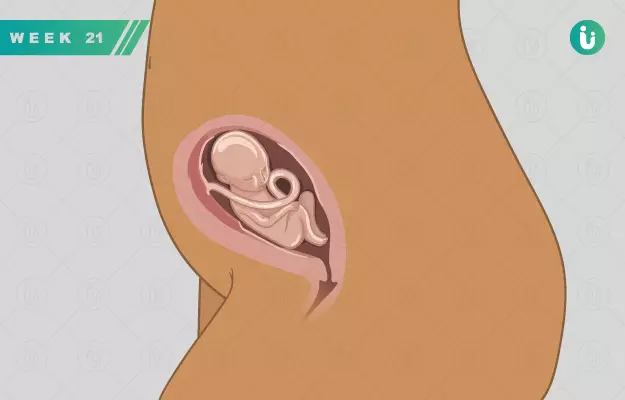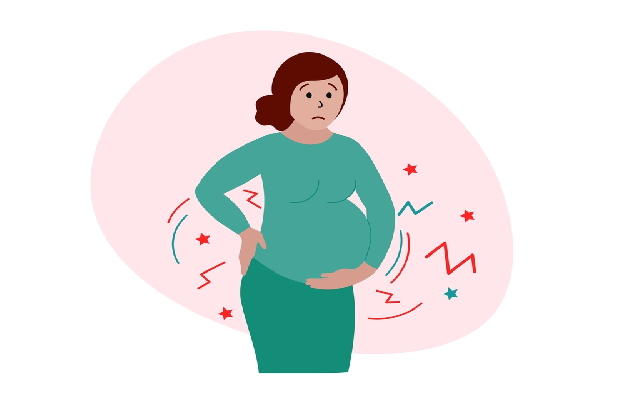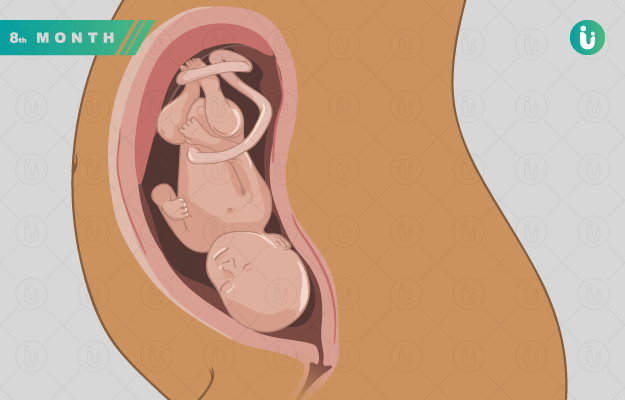Congratulations on getting to the 21st week of pregnancy! You’ve crossed the halfway mark of your pregnancy, can feel your baby kick and move in the womb, and are probably also garnering a lot of compliments about your pregnancy and the accompanying glow now.
The 21st week of pregnancy can actually feel like a very comfortable time. However, your abdomen is growing and you may feel a little off-balance at times. Your baby is growing rapidly, and you’ll find him or her responding to you talking, singing, etc., by kicking and moving about.
Of course, the second trimester comes with its own set of complications too, and you should take all of these very seriously. Your uterus hasn’t just grown bigger to accommodate a growing baby, but it has also changed its form completely. This makes you more susceptible to bacterial infections, urinary tract infections, and other types of infections as well.
There’s also a risk of hypertensive diseases, preterm premature rupture of membranes (PPRoM), premature labour and stillbirth. Not all of these complications can be controlled or avoided once they do start, so it’s best to take precautions against these complications of pregnancy by following a proper pregnancy diet, exercise routine and your doctor’s recommendations about sleep, rest, medications, etc.











































